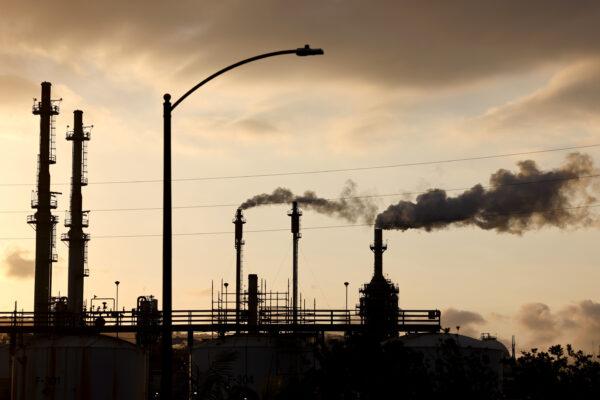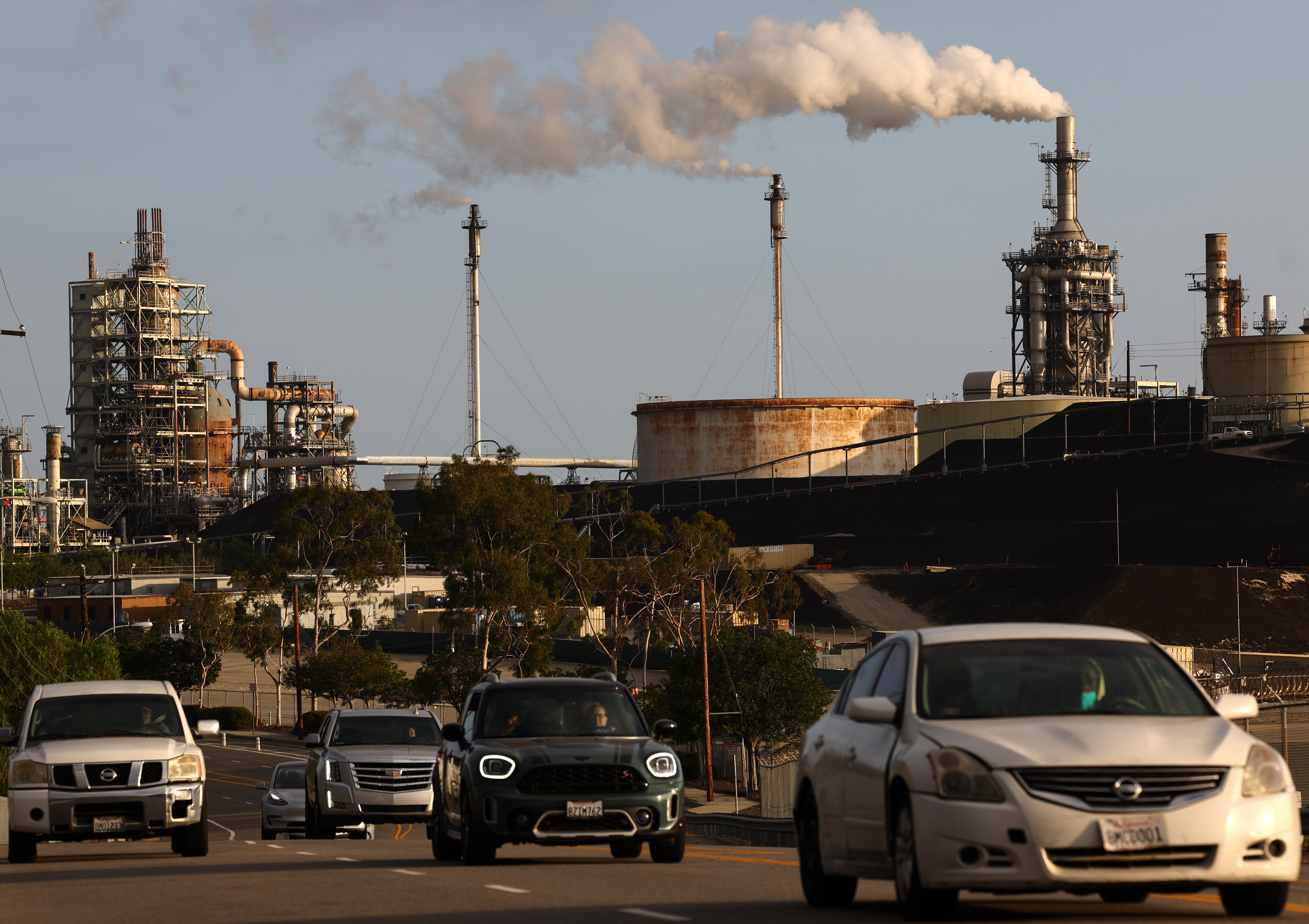Houston-based oil giant Phillips 66 Company faces a six-count indictment alleging its soon-to-be-closed Los Angeles refinery dumped wastewater containing oil and grease into the county’s sewer system, the U.S. Attorney’s Office announced Nov. 21.
According to the federal grand jury indictment returned Nov. 20, Phillips’s refinery violated the Clean Water Act when it discharged industrial wastewater into the county’s sewer system for two hours on Nov. 24, 2020, and for more than five hours on Feb. 8, 2021.
The refinery consists of two plants five miles apart, in Carson and Wilmington, linked by a pipeline.
“The company’s Carson facility failed to inform [the sewer system operator] of its noncompliant industrial wastewater discharge,” the U.S. Attorney’s Office wrote in a press release Thursday.
The alleged discharges, which reportedly contained thousands of pounds of oil and grease, adversely affected a sewer facility, according to prosecutors. In the November incident, the wastewater had a concentration of oil and grease more than 300 times the amount allowed in its permit, they said.
The company is charged with two counts of negligently violating the Clean Water Act and four counts of knowingly violating the federal act.
“Protecting our environment is key to protecting our community,” U.S. Attorney Martin Estrada said in a statement Thursday. “Just like the rest of us, corporations have a duty to follow the law, so when companies contaminate, they must be held accountable.”
The energy company affirmed its commitment to safety in response.
“Phillips 66 will continue its cooperation with the U.S. Attorney’s office and is prepared to present its case in these matters in court,” spokeswoman Slgi Jolissaint told The Epoch Times. “The company remains committed to operating safely and protecting the health and safety of our employees and the communities where we operate.”
The company was indicted one month after it announced its plan to shut down its Los Angeles area refinery in the fourth quarter of 2025.
A spokesman with the U.S. Attorney’s office said the case was not made in retaliation and not related to the planned closure.
“We announced the charges when we felt we were ready to go to a grand jury,” U.S. Attorney’s Office spokesman Ciaran McEvoy told The Epoch Times. “The company’s decision to close the refinery had no impact on our decision.”
Federal authorities said in the indictment that the refinery’s wastewater pretreatment system lacked the controls and practices needed to prevent or quickly address the discharge.
The Los Angeles County Sanitation Districts (LACSD) notified Phillips 66 of violations in December 2020 and again in March 2021.

The Phillips 66 refinery in Wilmington, Calif., on Nov. 28, 2022. The facility is linked by pipeline to another plant in Carson, five miles away. The company plans to close the facility in the fourth quarter of 2025. (Mario Tama/Getty Images)
The company’s facility manager wrote back after each notification to acknowledge its noncompliance and failure to notify authorities of the discharges, according to federal authorities.
If convicted of all charges, Phillips 66 faces a statutory maximum sentence of five years’ probation on each count and up to $2.4 million in fines. For a company, probation means operating under conditions imposed by the court.
The U.S. Environmental Protection Agency (EPA) is also investigating the incidents.
“Illegally discharging pollutants into the sewer system violates the Clean Water Act,” said Special Agent in Charge Kim Bahney of the EPA’s criminal investigation division.
About 900 people are needed to operate the refinery, including about 600 employees and hundreds of contractors, according to the company.
When the closure was announced, CEO Mark Lashier said the company understood the impact it might have on the employees and community, and planned to support employees through the transition.
A Phillips 66 spokesperson told The Epoch Times in October that the refinery was not as profitable as other company-wide assets, and the closure was not a reaction to the state’s regulatory structure or recently enacted regulations on oil refineries in the state.














